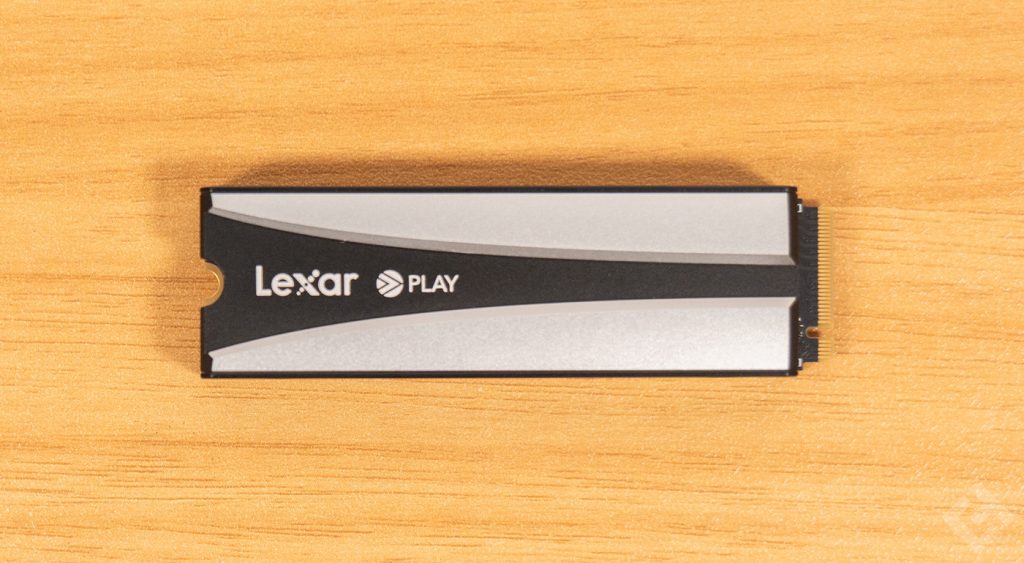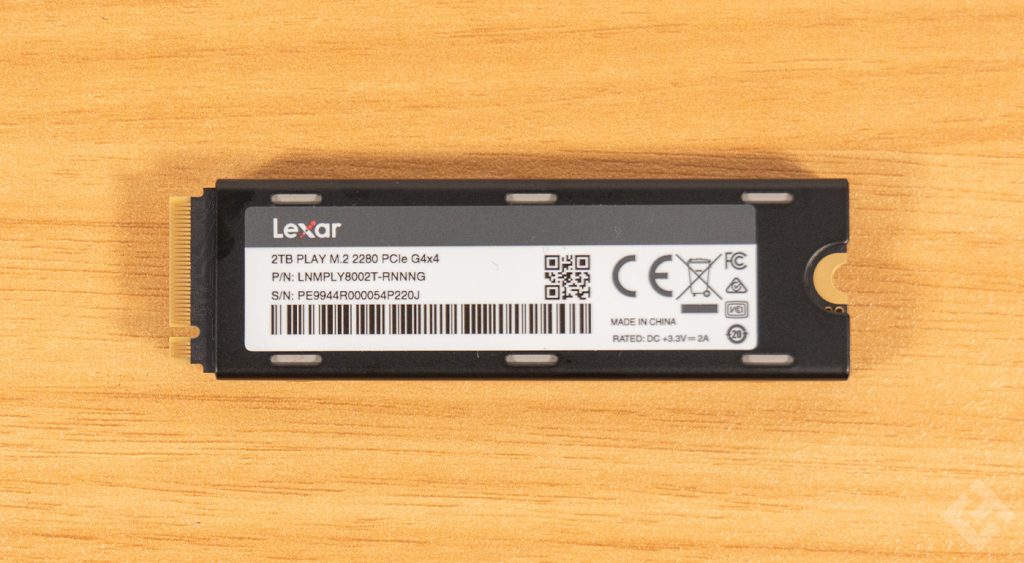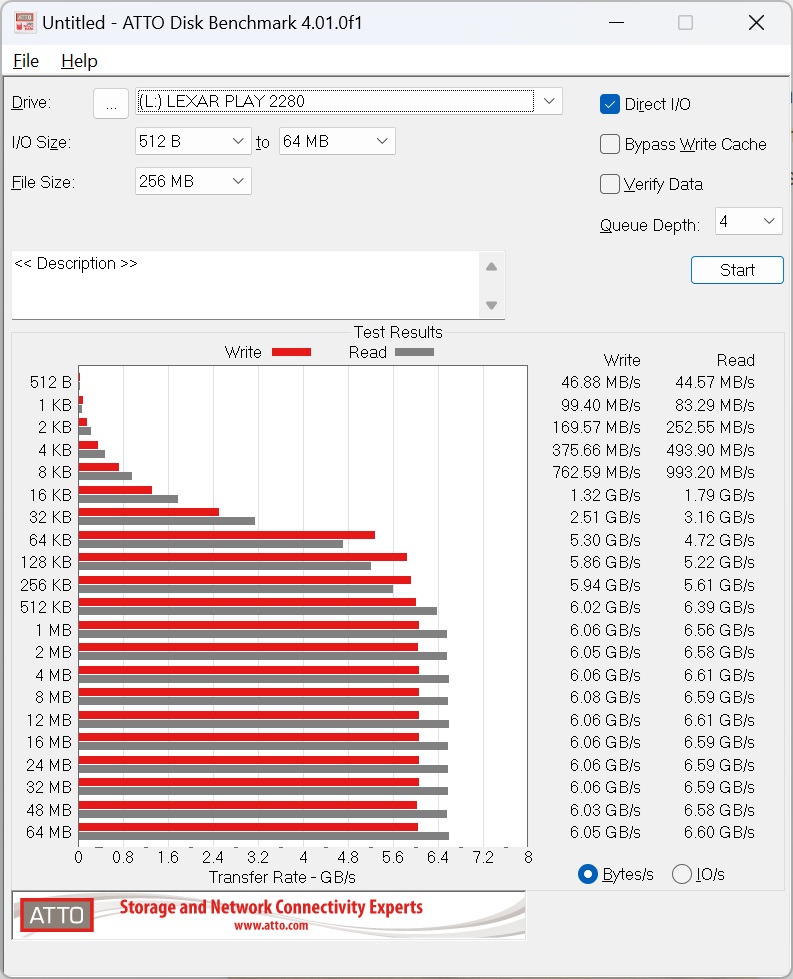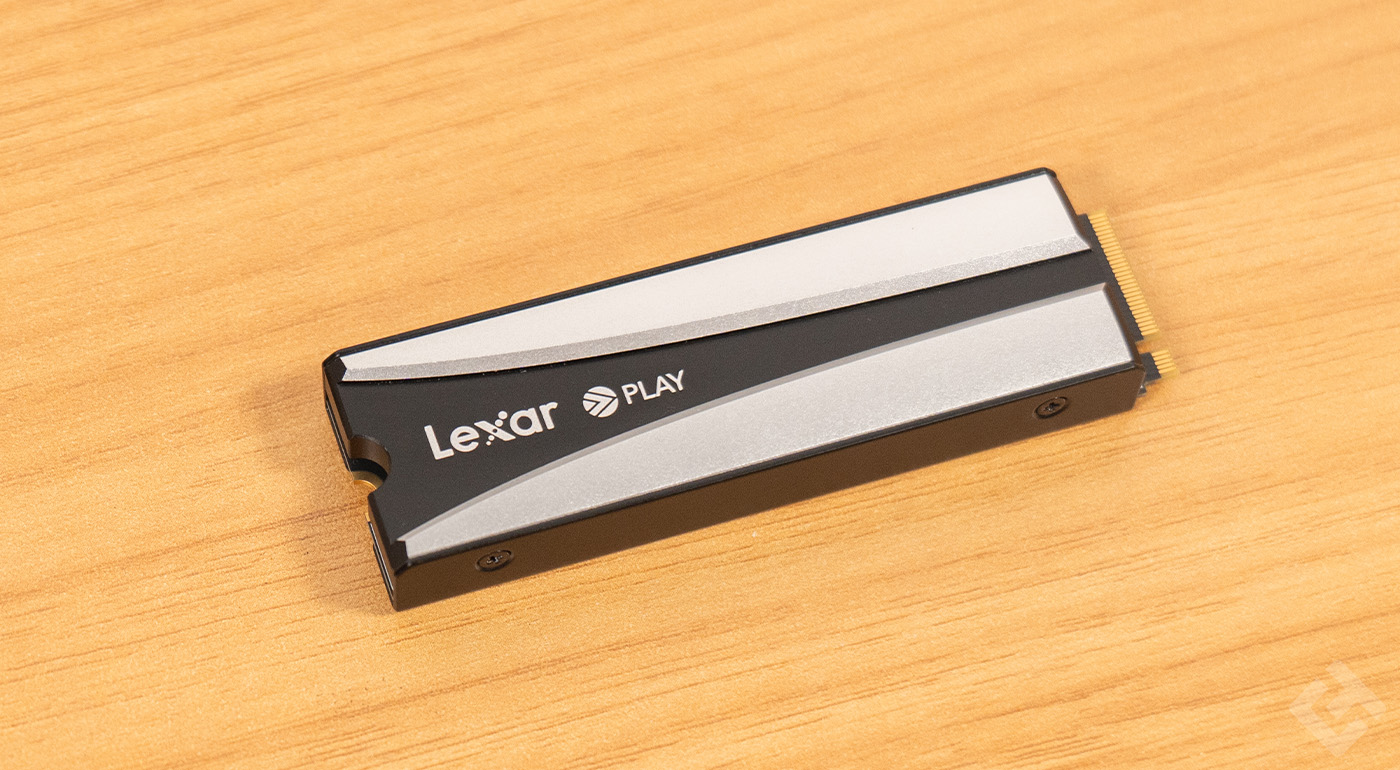The Lexar Play 2280 is a PCIe 4 SSD, preferably for gamers given its name, but which can be used for all kinds of needs. This model is adorned with a heatsink, which can be removed if required, although that’s not the brand’s idea through this. Let’s see what it’s worth in this full review of this internal SSD.
Design and packaging
For once, we can talk about design. After all, this is an internal SSD, but it has a heatsink, as do other models such as the Crucial T705 or the Corsair MP700 Pro.

Here, the heatsink remains fairly thin, as this is a PCie 4 SSD and not a PCIe 5, so it’s not expected to heat up excessively. The heatsink is also quite pretty, I admit, but it does pose a major problem. Now, all high-end motherboards have heatsinks on all M.2 connectors. So, either you remove the heatsink from the board, even if it means damaging its overall aesthetics, or you remove the heatsink from the SSD, even if it means potentially voiding the warranty.

Which is it? In my case, I don’t plan to do anything, as this SSD will be used for various motherboard and other component tests, so there’s no need to worry about the heatsink. In any case, the motherboard heatsink will be removed when testing boards or other components.
Packaging-wise, it’s as compact as ever, although the box is a little large for such a small product, but it’s still decent and nicely presented.
Lexar Play 2280 specifications
| Model | Lexar Play 2280 |
| Storage capacity | 2Tb, 4Tb |
| Maximum reading speed | 7400 MB/s |
| Maximum write speed | 6500 MB/s |
| Disk format | M.2 |
| Interface | NVMe PCIe 4 |
Consistently top performance
To test this SSD, I measured performance using two software programs, CrystalDiskMark and ATTO Disk Benchmark. This allows us to form an opinion on the real performance offered by the product.
| Data volume | 16 MB | 64 MB | 256 MB | 1 GB | 8 GB |
| Reading speed | 6924 Mb/s | 7016 MB/s | 7082 MB/s | 7037 MB/s | 7054 MB/s |
| Write speed | 6508 MB/s | 6488 MB/s | 6520 MB/s | 6530 MB/s | 6520 MB/s |
Performance is very good, but not quite what’s advertised for reading. Admittedly, it’s “up to” 7400 MB/s, but here we’re still a long way off. Even so, writing performance is respected, and data rates remain very good.

On ATTO, the test is a little more severe, showing speeds of 6600 MB/s for reading and 6000 MB/s for writing overall. We know that this software is generally, if not always, harder than CrystalDiskMark, and always displays lower data rates.
Lexar Play 2280: Reviews
The Lexar Play 2280 is a very good internal SSD, despite read performance falling short of the brand’s promises. The SSD works very well though, stability is perfect, but it’s not the delightful Lexar NM790, visibly unbeatable on the PCIe 4 sector.



